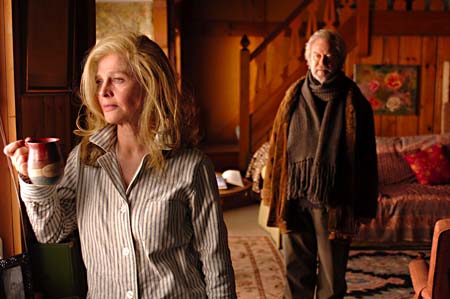
For the first time in four years, the Spanish Film Festival arrives at Cinema Paradiso. Commencing on a resoundingly high note, the festival opens with Crossing Borders (Un Franco Catorce Pesetas) a drama sprinkled with reality’s comedy, and accented by shades of social criticism. It focuses on Martin (Carlos Iglesias) and Marco (Javier Guiterrez), two friends who leave behind the rife unemployment and faltering economy of 1960s Madrid in favour of picturesque Switzerland. There, they quickly become accustomed to modern technologies and steady wages, and, after being joined by their families a year later, they learn to call this Alpine village their home.
This film is nothing short of an absolute pleasure – the warm, exuberant performances are a joy, and the story remains intensely involving until its conclusion. Weaving effortlessly through the six years these families spend in Switzerland, the plot intersects all manner of life experiences – some joyful and lightly humorous, others harsher and more profound. Tackling themes of migration and home sickness with an appropriate complexity, this is a film that will speak not only to Spanish migrants now living in Australia, but to all those who are caught in limbo between two countries. The personal pick of festival director Natalia Ortiz, this film is a definite highlight.
Rating: 8.5
The festival also presents Go Away From Me (Vete De Mi), a satirical comedy from director Garcia Leon (No Pain, No Gain), about Santiago (Juan Diego), a seemingly satisfied professional actor, (relatively) content with life and his live-in girlfriend, Ana (Christina Plazas). That is all until his hedonistic thirty-something son, Guillermo (Juan Diego Botto), arrives at his doorstep. After initially attempting to dispel Guillermo from his house, Santiago soon finds himself trying to offer advice, and, unexpectedly, ends up questioning his own direction in life.
This film could be easily cut in two. The first half is slow moving, mundane and lackluster, while the second half is entirely bizarre and will most likely leave you somewhat confused. If you are strong enough to push through the first half, the second is relatively intriguing, particularly as the two men begin to influence each others’ perspectives on life. The performances progress in a similar manner; initially they are utterly unremarkable, and grow stronger as the film continues. Overall, however, despite several pleasing moments, this film is largely forgettable.
Rating: 6.7
Spanish cinema is desperate to prove that it is not all comedy and drama, though, and does so in this festival with the inclusion of short films, co-productions and a couple of documentaries, including Hecuba: A Dream of Passion (Hecuba, Un Sueño De Pasión). This documentary features interviews with about a dozen Spanish actors (including Carmen Maura, Antonio Banderas and Javier Bardem), all of whom speak about the joys and pitfalls of acting as a profession. They discuss, amongst a myriad of topics, the merits of acting school, the reality stage fright, the process of generating emotion on stage and popular myths about actors (such as their inherent vanity), and their spiels are interspliced appropriately with visions from various Spanish films that have explored acting as a subject or theme.
The strength of this film is its selection of interviewees. All the actors are also interesting, inspiring speakers, who liven up the film with intriguing anecdotes and moral lessons. Certainly, this film would probably satisfy anyone with an interest in acting, or with a connection to the Spanish film industry. Unfortunately, for the rest of us, it has very little to offer. The filmmakers have not done anything particularly creative with the documentary form, and, coupled with the fact that the subject matter is also actually not very interesting, the film quickly grows tiresome. While the passion of the speakers is evident, it seems a bit more passion could have been invested into this film as a project.
Rating: 4.5











